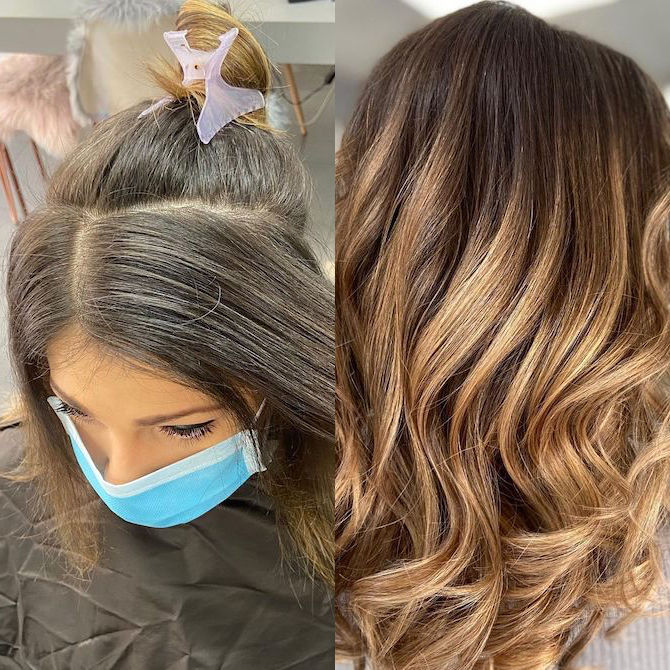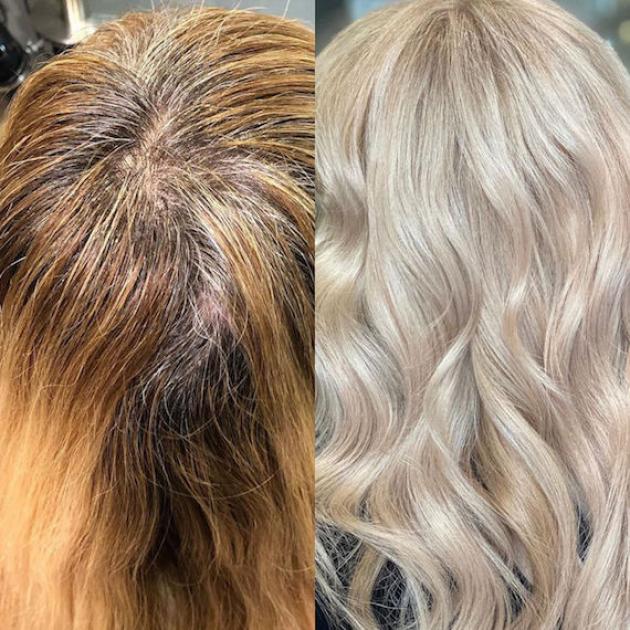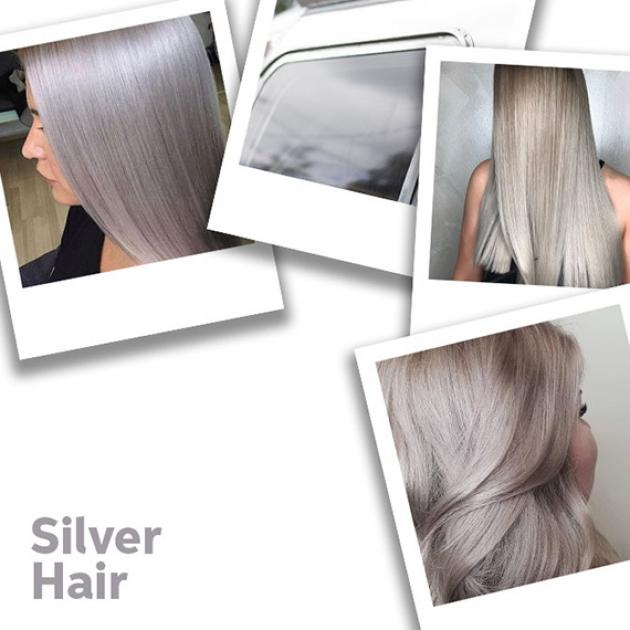‘What causes gray hair?’ It’s one of the most common questions we hear from clients who are trying to keep silver strays at bay, and can’t figure out where they came from. The fact is, there are a number of reasons we get gray hair – from stress to plain and simple genetics. Here, we reveal the full details, plus answers to seven more questions you might have about gray locks...
1. First, What is Gray Hair?
The answer to this is less obvious than you think. Gray hair isn’t merely a hair that goes gray; it’s actually a strand of hair that loses its pigment entirely. So, while it may look silvery, each ‘gray’ hair is really white or pigment-free. It may take on a gray-ish appearance when interspersed with other colors.
2. Why Does Hair Go Gray?
Hair goes gray – or, rather, loses its pigment – when the cells responsible for color, called melanin, stop being produced. There’s a host of possible reasons why this might happen, with age being the obvious one. It’s believed that stress, as well as nutritional, hormonal and genetic factors can all play a role, too.
3. Is Gray Hair Coarser Than Pigmented Hair?
Sometimes, gray hair can feel coarse or wiry. This isn’t a result of the hair losing pigment, but rather another natural process that takes place as we get older. Over time, your hair follicles produce less oil, which can cause this coarser texture. For clients who complain about wiry hair, suggest a hydrating shampoo and a deeply nourishing treatment. We love the Oil Reflections Luminous Reveal Shampoo Opens in a new tab and Luminous Reboost Mask Opens in a new tab; a sumptuous duo we’re dubbing a match made in moisture-boosting heaven.
4. When Does Hair Go Gray?
The rate at which hair turns gray varies from one person to the next. Some may notice silvery strays in their twenties, while others may spot their first grays in their forties. This is true for every hair color, whether it’s black, brown, blonde or red. However, those with darker hair may notice their grays sooner than blondes, as the white strands stand out more.
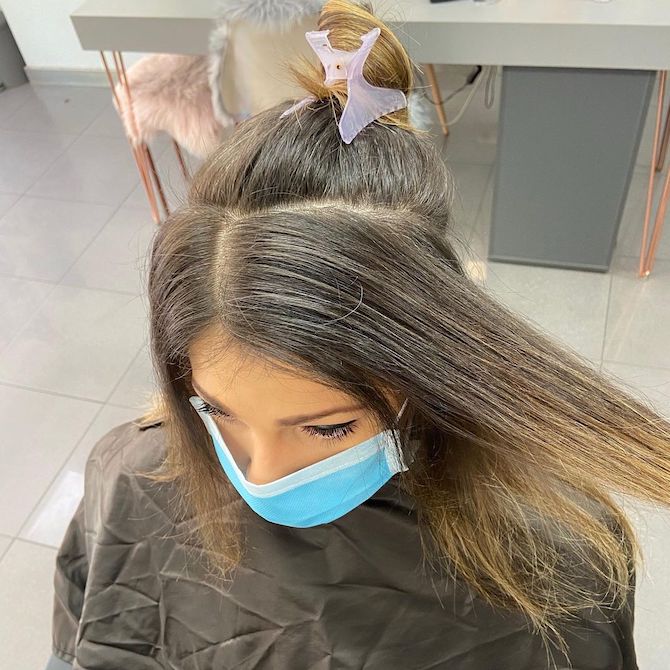
Image Credit: @house_of_balayage Opens in a new tab
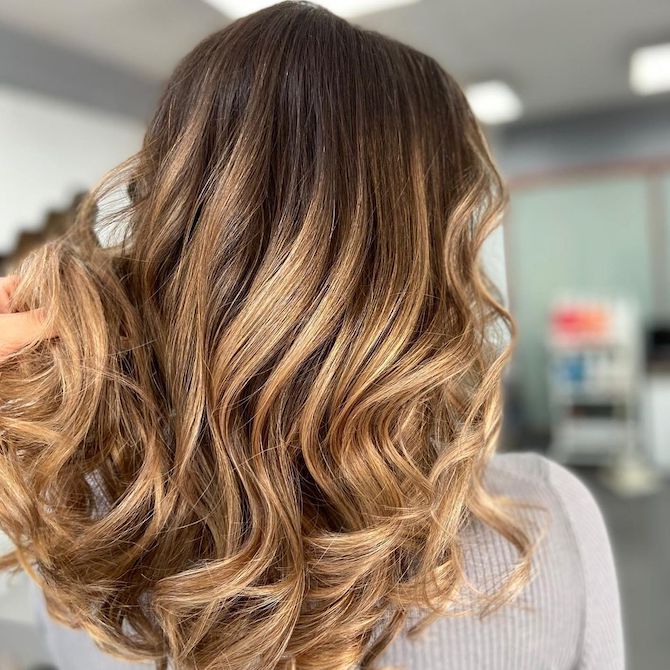
5. What Happens If You Use Purple Shampoo On Gray Hair?
External aggressors, such as chlorine or pollution, can cause gray hair to turn yellow over time. However, clients with yellowing grays can use a purple shampoo Opens in a new tab to neutralize that warmth. Suggest they turn to the INVIGO Cool Blonde Color Refreshing Shampoo Opens in a new tab once a week to cool down grays.
6. Can Gray Hair Be Colored?
Yes. Although some grays can be resistant to color, there are a number of options for clients who hope to hide their silver strays. Every gray coverage Opens in a new tab service begins with choosing the right color product, so talk your client through the options. Here are our ‘goodbye gray’ go-tos…
Demi-Permanent or Semi-Permanent Color
For clients who prefer a demi- or semi-permanent hair color Opens in a new tab, you can achieve anywhere between 30% and 70% gray coverage. Color Fresh Opens in a new tab gives you up to 30% with a subtle, true-to-tone tint, while Color Touch Opens in a new tab offers up to 70% with a vibrant and intense finish to boot. Choose one of these hues for a softer demarcation line when roots grow out.
Permanent Hair Color
This is the color for clients who hope to hide every single gray, offering up to 100% coverage in a range of shades. Choose Illumina Color Opens in a new tab for a sheer, light-reflective result or Koleston Perfect Opens in a new tab for a pure, healthy-looking finish. Then, mix the chosen color 1:1 with 6% Welloxon Perfect Developer Opens in a new tab for maximum coverage.
High Lift Shades and Hair Lightener
You can take a client’s hair from gray to blonde Opens in a new tab with a hair lightener Opens in a new tab or high-lift color. Choose your favorite Blondor Opens in a new tab product for highlights Opens in a new tab, Blondor Freelights Opens in a new tab for balayage Opens in a new tab or one of Koleston’s Special Blondes for lightener and toner in one. Mix the latter with Welloxon Perfect 12% for up to five levels of lift or 9% for up to three levels.
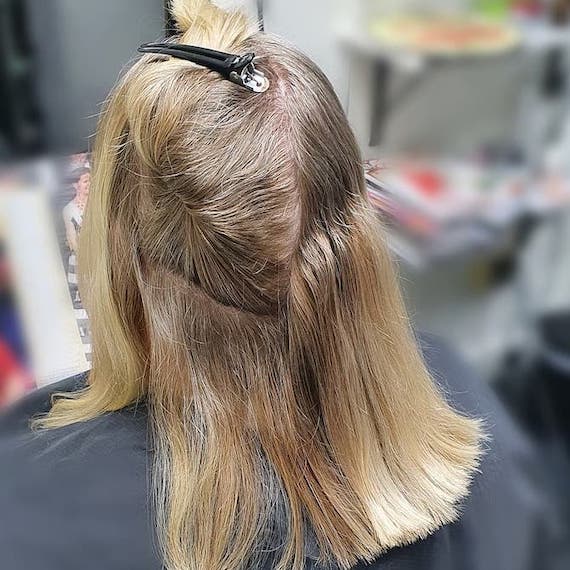
Image Credit: @harklippetimora Opens in a new tab
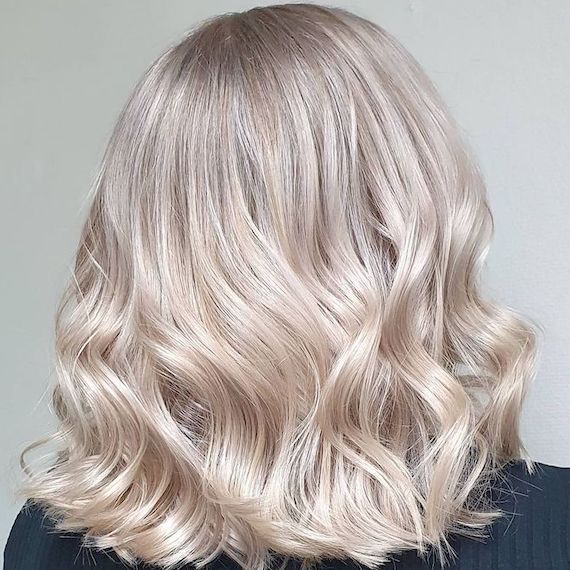
7. What Techniques Should I Use to Color Gray Hair?
There are three key Wella services we use to keep gray hair under wraps. Choose from a simple Root Touch Up, an Express Touch Up or Gray Blending. For minimal strays, you can also cover gray hair with highlights Opens in a new tab, applying them on or beside silver strands to gently blend them in and make them less noticeable.
Root Touch Up
The traditional, full-head root touch up sees color applied to regrowth with a tint brush. Do this with a permanent hair color Opens in a new tab shade of Illumina Color, Koleston Perfect or KP Resistant Cover. Go for a hue that either matches the color throughout the mid-lengths, or pick one that’s slightly darker to create an oh-so-delicate root shadow Opens in a new tab.
Partial Root Touch Up
Fast track gray coverage for clients who are tight on time or need a quick pick-me-up. You use the same color products as a normal Root Touch Up, but only apply to the parting and hairline. You can speed things up further by using heat to reduce the development time. A Climazon Opens in a new tab will take the process down from 40 minutes to just 25.
Gray Blending
Soft, subtle and seamless; this service is designed to touch up minimal regrowth, delivering just a hint of a tint to blend away stray grays. Quite simply, you use demi-permanent Color Touch or Color Touch Plus Opens in a new tab to refresh locks, whether by focusing your client’s chosen shade on the roots or sweeping through to the tips.
8. Tell Me More About Gray Coverage
For more hairspiration, discover our full collection of gray hair guides. Soon, you’ll find that there’s a product, shade and technique to suit every one of your clients:

